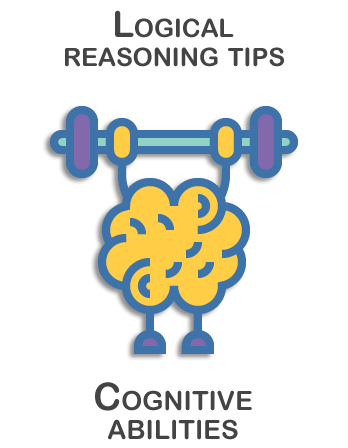Logical reasoning

Logical reasoning commonly includes deductive logic, inductive logic and analytical reasoning skills.
Deductive reasoning applies reasoning from the general to the specific whereas inductive reasoning involves creating general rules. With deductive reasoning, valid arguments are true provided that the premises are true, whereas, with inductive reasoning, there is always a certain degree of uncertainty involved.
Analytical reasoning is a form of deductive reasoning that involves categorizing and ordering items, and adhering to a set of rules and conditional statements.